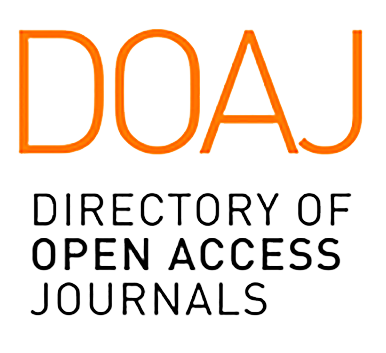Freedom of Expression in South Sudanese Judicial Struggle: Bought or Fought For? With Special Reference to India
DOI:
https://doi.org/10.15294/jllr.v5i4.4936Keywords:
Comparative Law, Comparative Constitution , Judiciary, Freedom of Speech & Expression , Constitutional rightsAbstract
This article examines the struggle of the South Sudanese people in the courtroom for freedom of expression with special reference to India. The aim is thus to illustrate the judicial perspective on interpretation of this fundamental right from the past to the present. This evaluation in nexus to the contemporary constitutional adjudication in the world at large and South Sudan in particular tries to draw the attention of the courts in South Sudan to adopt a progressive interpretation. It also stresses focus on interpretation adopted by judges in South Sudan. The paper seeks to reckon the concerned institutions in South Sudan to the ongoing liberal jurisprudences on the right to freedom of speech and expression on one hand and on the other hand informs the concerned institutions for a serious litigation and enforcement of Bill of Rights in South Sudan. Indeed, the paper has invoked progressive interpretations of fundamental rights from the U.K, India, and the U.S to help in justifying the grounds as to why South Sudanese litigants and courts should scarcely claim and upheld freedom of expression as fundamental and foundational tenet of a democratic society. The article concludes that the sanctity of all rights will be meaningless if freedom of expression is not accorded an important status by the concerned institutions.
References
African Centre for Justice and Peace Studies, “The Judiciary in Sudan: Its Role in the Protection of Human Rights During Comprehensive Peace Agreement” (2005-2011).
African Union. African Charter on Human and Peoples Rights, 1986. Available online at https://au.int/sites/default/files/treaties/36390-treaty-0011_-_african_charter_on_human_and_peoples_rights_e.pdf
Ajak, Peter Biar. “Protecting Scholars and the Freedom to Think, Question, and Share Ideas,” Scholar as Risk Network, 2023, accessed September 30, 2023, https://www.scholarsatrisk.org/actions/peter-biar-ajak-south-sudan/.
Alier, Abel. Too Many Agreements Dishonoured. (Reading, UK: ITHACA Press, 2003).
Baxi, Upendra. Courage, Craft and Contention: The Indian Supreme Court in the Eighties (Bombay, India: NM Tripati, 1985).
Brunhorst, Hanke. Critical Theory of Legal Revolutions: Evolutionary Perspective (London: Bloomsbury, 2014).
Committee to Protect Journalist (CJP). “South Sudan State Government Suspends Radio Jonglei for Five Days over Political Coverage,” Case—Committee to Protect Journalists, 2022, accessed September 29, 2023, https://cpj.org/2022/06/south-sudan-state-government-suspends-radio-jonglei-for-five-days-over-political-coverage/
Ding, Daniel Thabo Nyibong. “The Impact of Change Agents on Southern Sudan History.” PhD Thesis, (Institute of African and Asian Studies, University of Khartoum, 2006).
Dougherty, Veronica. "Absurdity and the Limits of Literalism: Defining the Absurd Result Principle in Statutory Interpretation." American University Law Review 44, no. 1 (1994): 127-166.
Emmanuel & Others v. State of Kerala, AIR 748 (1987).
Garner, Brian. A. Black’s Law Dictionary, 10th edition. (US: Thomson Reuters, 2014).
Gupta, Apar. “Apar Gupta Writes: On Manipur, Internet Shutdown is No Cure,” Indian Express, 2023, accessed September 30, 2023, https://indianexpress.com/article/opinion/columns/apar-gupta-writes-on-manipur- internet-shutdown-is-no-cure-8873758/.
Ibrahim, Abdullah Ali. Manichaean Delirium: decolonizing the Judiciary and Islamic renewal in the Sudan, 1898-1985. Vol. 7. (Leiden: Brill, 2008).
Iyer, Justice V. R. Krishna. Dynamic Lawyering. (India: LexisNexis Universal Law Publishing Co., 2015).
Jefferson, Thomas. "Letter to Edward Carrington (1787)." In Susan L. Maret and Jan Goldman (eds), Government Secrecy: Classic and Contemporary Readings Government Secrecy: Classic and Contemporary Readings (Connecticut, US: Greenwood Publishing, 2009).
Jefferson, Thomas. Thomas Jefferson’s Letter to Edward Carrington, January 16, 1787. In Facts of Media Law, as edited by Madhavi Goradia Divan. (Lucknow: EBC, 2018).
Khalil, Mohamed I. "The legal system of the Sudan." International & Comparative Law Quarterly 20, no. 4 (1971): 624-644.
Kumar, Justice HMJ Swatener. “The Roles of Courts in the Development of Law” (Speech, Indian National Law Institute, Chandigarh, 2011). https://highcourtchd.gov.in/sub_pages/top_menu/about/events_files/SKSpeech.pdf
Massoud, Mark Fathi. "Do victims of war need international law? Human rights education programs in authoritarian Sudan." Law & Society Review 45, no. 1 (2011): 1-32.
Massoud, Mark Fathi. Law's Fragile State: Colonial, Authoritarian, and Humanitarian Legacies in Sudan. (Cambridge: Cambridge University Press, 2013).
McLeod, Ian.Legal Theory. (London: Palgrave MacMillan, 2013);
Medani, Amin M. “The Constitutional Protection of Human Rights in Sudan: Challenges and Future Perspectives,” A Conference report organized by Faculty of Law, University of Khartoum in collaboration with Sudanese Human Rights Monitor and REDRESS (2014).
Mill, John Suart. Considerations on the Representative Government. (Cambridge: Cambridge University Press, 2011).
Mustafa, Zaki. "Opting out of the common law: recent developments in the legal system of the Sudan." Journal of African Law 17, no. 2 (1973): 133-148.
Nugud, Mohammed Ibrahim. Slavery in the Sudan, History, Documents and Commentary, Edited by Sharon Barnes. Translated by Asama Mohammed Abdel Halim. (London: Palgrave, 2013).
Republic of South Sudan, Media Authority Act, 2013.
Republic of South Sudan, The Transitional Constitution of the Republic of South Sudan, 2011.
Republic of South Sudan. Media Authority Act, 2013. National Communication Authority Act (South Sudan), 2013.
Republic of South Sudan. Revitalized Agreement on Conflict Resolution in South Sudan, 2018.
Singh, Justice G.P. Principles of Statutory Interpretation (India: LexisNexis Universal Law Publishing Co., 2016).
Summers, Robert S. Essays in Legal Theory. (Dorderht: Springer Science & Business Media, 2000).
The government system or structure in South Sudan is that there is a National Legislature and State Legislature as well as National and States Executive.
UN Mission to South Sudan (UNMISS), A Report on Violations and Abuses of International Human Rights Law and Violations of International Humanitarian Law in the Context of the Fighting in Juba, South Sudan, in July 2016, January 2017, available at: https://www.refworld.org/docid/587e14594.html
United Nations. International Covenant on Civil and Political Rights, 1966. Available online at https://treaties.un.org/doc/treaties/1976/03/19760323%2006-17%20am/ch_iv_04.pdf
Universal Declaration of Human Rights, 1948.
Von Holst, Hermann. The Constitutional and Political History of the United States. Vol. 1. (Chicago: Callaghan, 1879.
Cases
Brown v. Board of Education of Topeka, 347 U.S. 483 (1954).
Elhaj Yousuf Elhaj Mekki v. Izulldin Ahmed Mohammed, CC/CC/6 (2006)
Joseph A. Garang & Others v. The Supreme Commission & Others, SLJR 1 (1968).
Kesavananda Bharati v. State of Kerala, 4 SCC 225 (1973).
Members of the Sudan People’s Liberation Movement—Democratic Change v. The First Vice President of the Republic, President of the Government of Southern Sudan and Chairman of the Sudan People’s Liberation Movement, and Ors., CC/CD/172 (2009).
Ram Manohar Lohia v. State of Bihar, AIR SC 740 (1966).
Romesh Thapper v. State of Madras, AIR SC 124 (1950).
Sudan Government v. Darious Bashir & Others, SLJR 99 (1966).
Sudan Government v. Father Silvano Gottardi, SLJR 245 (1960).
Sudan Government v. Milton Thompson, SLJR 56 (1963).
Sudan Government v. Paulino Dogali & Others, SLJR 83 (1962).
Terminello v. Chicago, 93 LEd 1131 (1949).
Downloads
Published
Article ID
4936Issue
Section
License
Copyright (c) 2024 Varun Chhachhar, Wol Deng Akech (Author)

This work is licensed under a Creative Commons Attribution-NonCommercial-ShareAlike 4.0 International License.
All writings published in this journal are personal views of the authors and do not represent the views of this journal and the author's affiliated institutions. Author(s) retain copyrights under a Creative Commons Attribution-NonCommercial-ShareAlike 4.0 International (CC BY-NC-SA 4.0).









